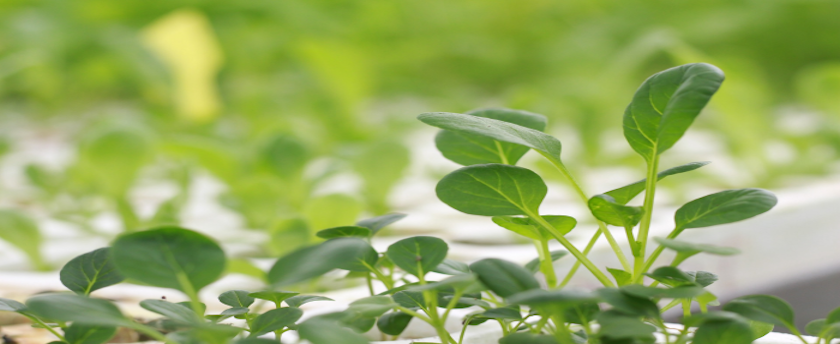
Aeroponics is the process of growing plants in an air or mist environment without the use of soil or an aggregate medium (known as geoponics). The word "aeroponic" is derived from the Greek meanings of Aero- (air) and ponos (labour). Aeroponic culture differs from both conventional hydroponics and in-vitro (plant tissue culture) growing. Unlike hydroponics, which uses water as a growing medium and essential minerals to sustain plant growth, aeroponics is conducted without a growing medium. Because water is used in aeroponics to transmit nutrients, it is sometimes considered a type of hydroponics.
Pure Aeroponics
The true aeroponics system encourages the complete drain out of nutrient between cycles. During this "dry" cycle air displaces the exiting nutrient.
In the pure aeroponics system the plants roots are allowed to fully drain while still in a humid, dark environment. The roots are able to uptake more substantial concentrations of nutrient without burning as they are not continuously submersed.
Growing plants indoors in containers is truly frustrating. Just about the time a plant is of good size things tend to go poorly. The fertilizer you have been using has done its job well...but now entering the bloom cycle the roots are calcified with those same nutrients. Your applying nutrient but the roots can't upload it.
Ever noticed the white build up around clay pots? Those are the fertilizer salts calcifying on the pot. When this happens to roots it blocks them from receiving nutrients. The plants become weaker, and more susceptible to disease and insects. The solution is state of the art aeroponics systems.
If this has happened to you then an aeroponics system may be the right choice.
Aeroponics is a system wherein roots are continuously or discontinuously kept in an environment saturated with fine drops (a mist or aerosol) of nutrient solution. The method requires no substrate and entails growing plants with their roots suspended in a deep air or growth chamber with the roots periodically whetted with a fine mist of atomized nutrients. Excellent aeration is the main advantage of aeroponics.
Aeroponic techniques have proved to be commercially successful for propagation, seed germination, seed potato production, tomato production, leaf crops, and micro-greens. Since inventor Richard Stoner commercialized aeroponic technology in 1983, aeroponics has been implemented as an alternative to water intensive hydroponic systems worldwide. The limitation of hydroponics is the fact that 1 kg of water can only hold 8 mg of air, no matter whether aerators are utilized or not.
Another distinct advantage of aeroponics over hydroponics is that any species of plants can be grown in a true aeroponic system because the micro environment of an aeroponic can be finely controlled. The limitation of hydroponics is that only certain species of plants can survive for so long in water before they become water logged. The advantage of aeroponics is that suspended aeroponic plants receive 100% of the available oxygen and carbon dioxide to the roots zone, stems, and leaves, thus accelerating biomass growth and reducing rooting times. NASA research has shown that aeroponically grown plants have an 80% increase in dry weight biomass (essential minerals) compared to hydroponically grown plants. Aeroponics used 65% less water than hydroponics. NASA also concluded that aeroponically grown plants requires ¼ the nutrient input compared to hydroponics. Unlike hydroponically grown plants, aeroponically grown plants will not suffer transplant shock when transplanted to soil, and offers growers the ability to reduce the spread of disease and pathogens. Aeroponics is also widely used in laboratory studies of plant physiology and plant pathology. Aeroponic techniques have been given special attention from NASA since a mist is easier to handle than a liquid in a zero gravity environment.
Contemporary Aeroponics
Contemporary aeroponic techniques have been researched at NASA's research and commercialization center BioServe Space Technologies located on the campus of the University of Colorado in Boulder, Colorado. Other research includes enclosed loop system research at Ames Research Center, where scientists were studying methods of growing food crops in low gravity situations for future space colonization.
In 2000, Stoner was granted a patent for an organic disease control bio control technology that allows for pesticide-free natural growing in an aeroponic systems.
HydroNaturals can design an aeroponics system for you on a large or small scale. We can aslo provide alternative energy systems to give you cost free lighting for your indoor growing systems. Contact Us.
HydroNaturals provides a complete line of nutrients as well as a customizable and completely unique product to meet your needs. Learn More >>>


